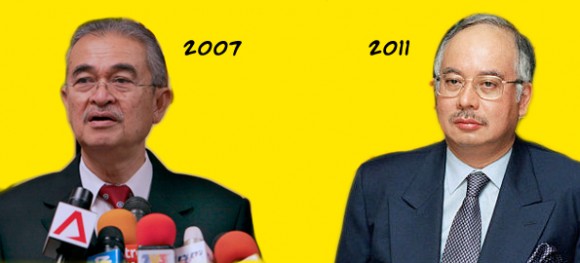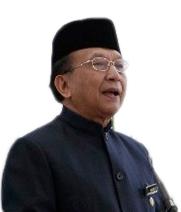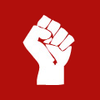Updated 5.45pm on 10 July 2011
The prime ministers’ reactions
In 2007
“They are challenging the patience of the rakyat who want this country to be peaceful and stable. That is what they are challenging, not me.
“Tapi saya mesti kata saya pantang dicabar.”
Former Prime Minister Tun Abdullah Ahmad Badawi vowing to crack down on the 2007 Bersih rally during his presidential winding-up speech at the 2007 Umno general assembly.
He gave his support to the police to break up the rally and arrest demonstrators because the gathering did not have a police permit. His announcement was greeted with roars of approval from Umno delegates. (Source: PM vows to crack down on Bersih rally, Malaysiakini, 9 Nov 2007)
In 2011
“(Bersih chairperson Datuk S) Ambiga should not think herself so strong. We will not budge at all, fighting for the truth. We will keep our claws.”
Current Prime Minister Datuk Seri Najib Razak, speaking to supporters during a meeting at Pasir Puteh in Kelantan on 2 July 2011. He claimed that Barisan Nasional had the people’s support as 20,000 had come to meet him in a PAS-led state on that day.
Najib softened his stance on 4 July 2011 and said the government was willing to provide a stadium for Bersih 2.0 after the King’s intervention. However, on the same day, police announced that it, together with Bank Negara, was investigating Ambiga’s bank accounts because of allegations she had received funds from foreign non-governmental organisations. (Source: Over 20,000 turn up to meet Najib, Bernama, 2 July 2011)

“I believe if there are evil enemies who want to attack the country from without and within, ‘anak-anak lincah’ will rise to fight them.”
Najib endorses silat groups in a fiery speech on 6 July 2011 to celebrate Pertubuhan Seni Silat Lincah Malaysia (PSSLM)’s 50th anniversary. He said silat and other self-defence exponents were the country’s third line of defence. This line of defence includes PSSLM that threatened to wage “war” against Bersih 2.0. PSSLM had also said it could not control its members’ emotions if they were opposed. (Source: Najib endorses silat groups despite their threat to Bersih, The Malaysian Insider, 7 July 2011)
The ministers
In 2007
“From what I understand, police did not issue the permit as the organisation is not a registered body. It also did not obtain permission from the City Hall to use the Merdeka Square.
“We learned that a march would also be held which could disrupt public order. Based on these reasons, police are not allowing the gathering to take place.”
Former deputy internal security minister Datuk Mohd Johari Baharom defending the police’s refusal to issue a permit to Bersih to hold its rally at Dataran Merdeka on 10 Nov 2007. In 2007, Bersih was merely deemed “not registered”. (Source: Police rejects Bersih’s application for rally permit, Malaysiakini, 7 Nov 2007)
In 2011
“Just because they met with the King does not mean they are no longer illegal.”
Home Minister Datuk Seri Hishammuddin Hussein said Bersih 2.0 was still outlawed even though the Agong granted it an audience after declaring that the civil society-led movement’s “original intention [was] good”. The home minister had declared Bersih 2.0 outlawed from 1 July onwards. Hishammuddin said the movement’s status was unchanged even though it had, out of respect for the King’s advice, agreed to hold the rally in a stadium. (Source: Home Minister says Bersih still illegal, The Star, 6 July 2011)
“Their application to hold the rally in Kuala Lumpur, such as in Stadium Merdeka, Stadium Negara dan Stadium Bukit Jalil will not be entertained.”

Information, Communications and Culture Minister Datuk Seri Dr Rais Yatim said the government would not entertain Bersih 2.0’s application to use the three stadiums because the group was illegal. Rais said Bersih 2.0 could hold its rally in stadiums located in Pakatan Rakyat-led states such as Selangor, Penang, Kelantan and Kedah instead. (Source: Cabinet shoots down rally in KL stadium proposal, Malaysiakini, 6 July 2011)
The police
In 2007
“The police fear that there are irresponsible groups and undesirable elements who will take the opportunity to create disorder through provocations which would eventually lead to street demonstrations and rioting.”

Former Inspector-General of Police (IGP) Tan Sri Musa Hassan claiming that the 10 Nov 2007 Bersih rally was a threat to public order. He warned the public against attending the march as the organisers did not have a permit.
He added that roadblocks would be set up and 4,000 police officers would be deployed to disperse the crowd.
[Updated] According to the Bar Council, 34 people were arrested on the day of the first Bersih rally in 2007. In total however, 245 people were arrested before and during the rally, according to the Kuala Lumpur police. This included the 192 who were arrested when they tried to enter the city the previous night. (Source: Cops mount roadblock to stop rally participants, Malaysiakini, 9 Nov 2007)
In 2011
“Intelligence gathered has revealed attempts by certain quarters, including foreign elements, attempting to seize the opportunity and exploit the situation.
“There is a possibility that should the rally proceed, it could create chaos, destruction to property, injuries and even the possibility of loss of lives.”
Current IGP Tan Sri Ismail Omar alleged that foreign agents are out to create chaos at the 9 July 2011 rally and vowed that the police would go all out to prevent the rally. Roadblocks were set up from 6 July 2011, and are expected to cause traffic jams around the Klang Valley until 9 July 2011.
Apart from foreign agents, the police have also attempted to link Bersih 2.0 to communists and violent rioters.
[Updated] Police said they arrested 1,667 people as of 6.40pm on 9 July 2011 for taking part in rallies around the city. This was on top of the 235 people who were arrested prior to the rally, as of 7 July 2011. (Source: Police to use all available laws to prevent July 9 demonstrations, The Star, 30 June 2011)
“With this, they are barred and given warning not to be present or take any part in any assembly in those places on July 9 from 8am to 6pm.”
“This means that anyone (on the list) caught present at these areas will be arrested on sight.”
Kuala Lumpur deputy police chief Datuk Amar Singh in announcing that the police had obtained a court order preventing 91 persons from entering Kuala Lumpur on 9 July 2011. A breach of the order is punishable under the Penal Code by up to six months’ jail or up to RM2,000 fine or both.
Amar said the court order was approved on 6 July and had been sent out to the 91 individuals. To a question, he said if the 91 wanted to gather just outside the restricted zone, they would have to get a police permit.
Of the 91, the majority were key Opposition Members of Parliament and from Bersih 2.0, while about a dozen each were from Perkasa and Umno Youth. The police also said they would be shutting down city roads to paralyse any attempt to rally on 9 July. All buses headed to Perhentian Pudu will also be rerouted to Perhentian Duta come 9 July.
Amar said the public could enter the city “but we urge the public not to enter Kuala Lumpur on that day.” (Source: Cops: Restriction order against 91 individuals, Malaysiakini, 7 July 2011)
Human rights groups
In 2007
“If Malaysia wants to count itself a democracy, it can begin by upholding constitutional guarantees of free speech and assembly. The way the system works now, only the ruling coalition can get its messages out.”
Human Rights Watch Asia director Brad Adams urging the Malaysian government to allow the Bersih rally to go ahead.
He said the organisers only wanted to create a level playing field for all in the elections, yet were being denied their basic right to express their concerns in a peaceful demonstration. (Source: Malaysia: Allow rally for electoral reform, Human Rights Watch, 9 Nov 2007)
In 2011
“[M]ore than 150 people have so far been detained by authorities over the rally.
“What is even more appalling is that the campaign of intimidation continues even after the Bersih 2.0 organisers have agreed to move the mass rally planned for 9 July to a stadium.”

Suaram coordinator Hasbeemasputra Abu Bakar in condemning the state’s continued intimidation and harassment of Bersih 2.0 activists. Among the arrested are six Parti Sosialis Malaysia (PSM) members who have been detained without trial under the Emergency Ordinance (EO) since 2 July for “waging war against the King”.
Apart from Suaram, various civil society groups including the Bar Council have urged the government to stop the crackdown on Bersih 2.0 and allow the peaceful rally to proceed. (Source: Malaysian police detains more activists, AFP, 6 July 2011)
“Malaysia’s image and standing as a member of the UN (United Nations) Human Rights Council is being severely tarnished when instead of responding substantively to the detailed proposals for electoral reforms made by Bersih, you and your government have unleashed a barrage of arbitrary arrests of Bersih’s leaders and supporters in violation of their fundamental rights to freedom of association, expression, and peaceful assembly.”
A joint letter from five international human rights groups — Amnesty International, Asian Forum for Human Rights and Development, Human Rights Watch, International Federation of Human Rights and World Organisation Against Torture — to the Malaysian government.
The groups urged the Malaysian government to immediately release all detainees, including the six PSM members who were prevented from meeting lawyers or family members. (Source: Five global rights group condemn crackdown, remind Najib of UNHRC membership, Harakah Daily, 6 July 2011) ![]()

